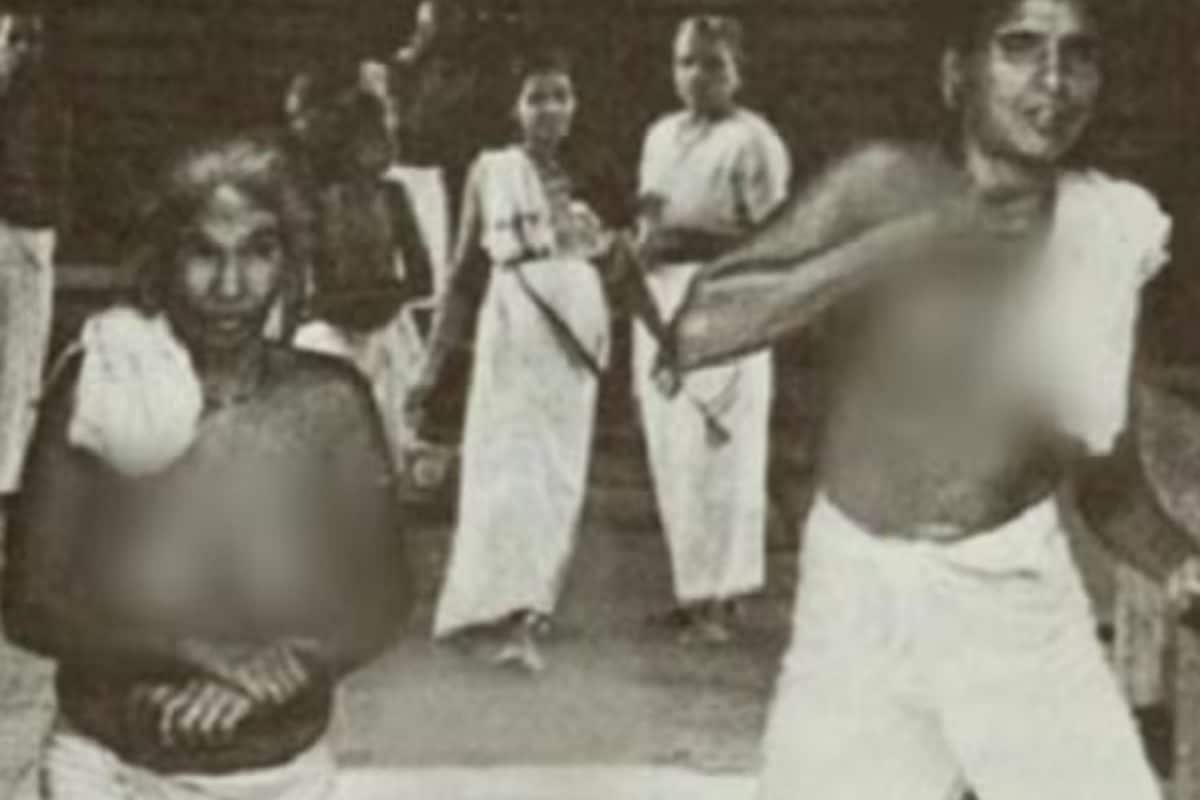'Breast Tax' and the Nadar Rising
National NationalPosted by AI on 2025-08-12 08:50:18 | Last Updated by AI on 2025-08-12 11:10:59
Share: Facebook | Twitter | Whatsapp | Linkedin Visits: 0

In early 19th-century Travancore, Kerala, upper-caste rulers imposed a brutal tax on women of the Nadar community they could choose to pay the tax, or go naked. The 'breast tax' sparked a fierce rebellion and a landmark legal victory.
On a scorching hot day in March 1829, in the southern Indian kingdom of Travancore (now part of Kerala), a startling spectacle unfolded at the bustling seaport of Colachel. A group of nearly 50 women, clad in loose-fitting clothes, made their way to a local courthouse.
These women from the Nadar community had challenged the upper-caste rulers' autocratic tax levy on their breasts, choosing to fight back in a bold demonstration and file a lawsuit. Their protest and legal action to overturn this discriminatory 'breast tax' would spark one of Kerala's longest and most significant social uprisings against caste-based oppression and gender inequality.
For these women, the tax was just one element of their subaltern status in a deeply hierarchical society. Over the years, the rulers had subjected them to other oppressive measures, including stringent dress codes that mandated covering up entirely from head to toe in public.
The women, unable to bear the indignity any longer, rallied together to refuse to pay the tax or to comply with the oppressive clothing regulations. The kingdom's authorities, aware of the women's growing rebellion, warned them of the consequences of their actions. Still, the women remained defiant, finally leading to their arrest and imprisonment.
Fortunately, their courage and tenacity attracted the attention of sympathetic British missionaries and officials, who took up their cause. These British advocates successfully secured partial relief for these women, getting the tax abolished for Christian Nadar women and allowing them to wear blouses, although not in the same style as upper-caste women.
Although the uprising's specific demands were not fully achieved, it led to significant reforms in legislation that improved the situation for the Nadar community, most notably the valuable legacy of equal justice under the law for all citizens, regardless of caste or gender.
Search
Categories
- Sports
- Business
- History
- Politics
- International
- Science & Technology
- Social Issues
- Disaster Management
- Current Affairs
- Education
- Startup Business
- Startup News
- Awards
- Community Services
- Fundraising Events
- Volunteer Services
- Health Initiatives
- Innovations and Initiatives
- In News
- dummybanners
- Awards
- Partners
- Products
- Press Releases
- News
- Fast Check
- South
- సినిమా
- Gallery
- Sunday Chronicle
- Hyderabad Chronicle
- లైఫ్ స్టైల్
- National
- క్రైం
- ట్రెండింగ్
- జాబ్స్
- అంతర్జాతీయo
- బిజినెస్
- రాజకీయం
- బిజినెస్
- సంపాదకీయం
- నవ్య
- చిత్ర జ్యోతి
- క్రీడలు
- జాతీయం
- తెలంగాణ
- తాజా వార్తలు
- మన పార్టీ
- మన నాయకత్వం
- మన విజయాలు
- డౌన్లోడ్స్
- మీడియా వనరులు
- కార్యకర్తలు
- North East Skill Center News
- Government Schemes
- Entrepreneurship Support
- Employment Opportunities
- Skill Training Programs
- Departments
- Investments
- Initiatives
- Resources
- Telangana IT Parks
- Events & Jobs
- Press Releases
- News
- Airport News
- Newtons Laws of Motion
- Karbonn in Business
- Investments in Karbonn
- Company quarterly sales
- Markets
- Auto News
- Industry
- Money
- Advertisements
- Stock target
- Company Updates
- Stock Market
- Company Sales
- Staffing and HR
- Constituency Assembly
- General News
- Srikalahasti Temple
- Bojjala Sudhir Reddy
- Technology & Innovation
- Sports
- Business
- Products
- Industries
- Services & Trainings
- Tools & Resources
- Technology Integration
- Drug Seizures & Arrests
- Telangana Narcotics
- Law & Enforcement
- Rehabilitation
- Nationwide Drug Policing
- Nigeria Seizures
- Global Operations
- Drug Awareness
- Drug Enforcement Tech
- NCB Drug Seizures
- Judicial Crackdown
- India's Surveillance Tools
- Cross-Border Links
- Women Safety
- Cyber Crimes
- Drug Abuse
- Traffic & Road Safety
- Community Connect
- Public Safety Alerts
- Citizen Assistance
- Nellore City News
- Politics & Administration
- Events & Festivals
- Agriculture & Rural
- Business & Economy
- Health & Wellness
Recent News
- Bermuda Triangle: The World's Lamest Anti-Climax
- Trump's Ukraine 'Territory Swap' Deal: What It Means For The Residents Of The Regions
- Cabinet Approves Four Semiconductor Projects, Rs 4600 Crore Budgeted
- Stock Car Driver Robbie Brewer Succumbs to Medical Emergency
- UFC Fans Caught In Merger Middle-Earth With Paramount Bags Exclusive UFC Rights In Landmark $7.7 Billion Deal
- Tragic Passing of Italian Athlete Mattia Debertolis
- Seeds Of Sabotage: The 'Agro-Terrorism' Threat India Can't Ignore
- Religious Harmony Cracks Under Pressure: Temple-Mosque Dispute Ignites Clashes In Uttar Pradesh